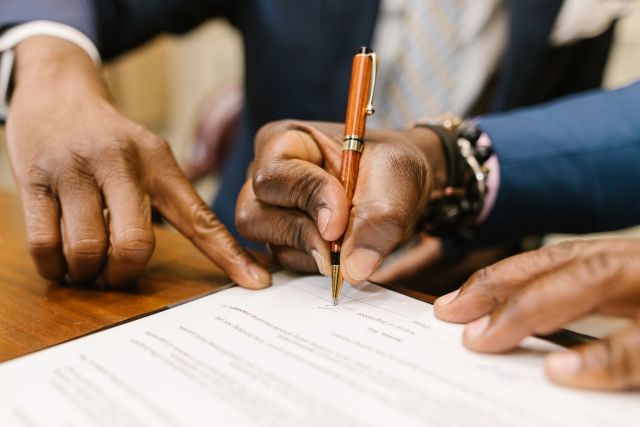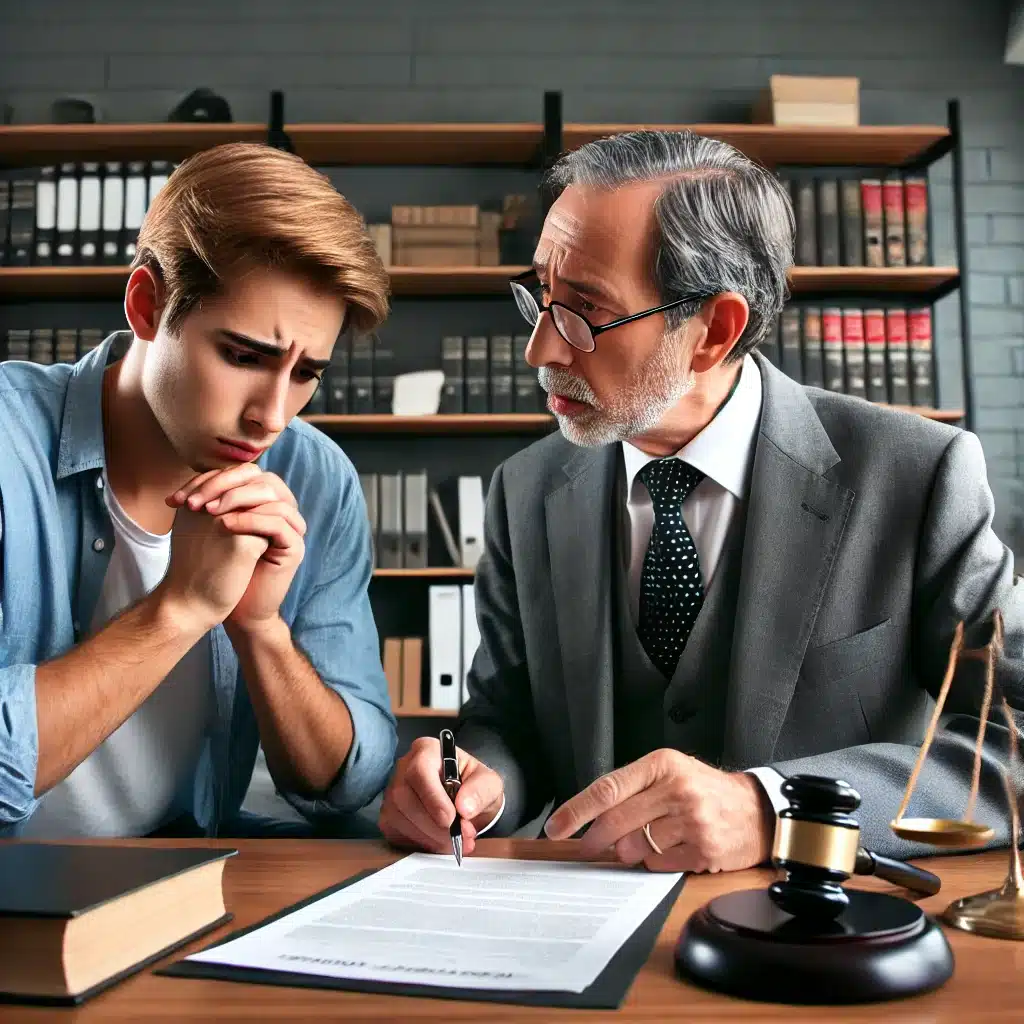How a Lawyer Can Assist With Your Habeas Corpus Request
How a Lawyer Can Assist With Your Habeas Corpus Request
Blog Article
Comprehending the Duty of a Post-Conviction Lawyer in Seeking Justice After a Criminal Conviction
In the facility landscape of post-conviction legal proceedings, the function of a post-conviction attorney is critical in navigating the course to justice after a criminal conviction. Beyond the boundaries of a test, these attorneys take part in a complex approach intended at uncovering new proof, difficult legal mistakes, and promoting for their clients' rights. The intricacies of post-conviction job need a mix of legal acumen, investigatory skills, and tactical thinking to untangle the complexities of a case and seek avenues that might have been ignored or underexplored. As the pursuit of justice expands beyond the boundaries of initial process, the function of a post-conviction lawyer arises as a beacon of wish for those seeking to remedy injustices and redeem their legal rights within the legal system.
Post-Conviction Legal representative's Investigative Work
Post-conviction lawyers participate in careful investigative job to discover new proof, procedural mistakes, or misconduct that can potentially lead to rescinding a conviction. This investigatory phase is crucial in the post-conviction procedure as it aims to determine any type of overlooked information or legal mistakes that may have affected the outcome of the preliminary test. Post-conviction attorneys explore instance files, witness testaments, and legal paperwork with a fine-tooth comb, looking for any type of inconsistencies or irregularities that could be premises for allure.
Via extensive investigation, post-conviction legal representatives intend to clarify potential injustices that might have occurred throughout the initial trial. They may conduct meetings, consult with professionals, and testimonial forensic evidence to build an engaging case for their clients. By scrutinizing every facet of the lawful procedures, post-conviction attorneys work relentlessly to reveal any kind of factors that might have affected the verdict. Inevitably, their investigatory job plays a crucial role in the search of justice and the potential turnaround of wrongful convictions.
Crafting Appeals and Petitions
In the pursuit of justice after a conviction, knowledgeable legal representatives carefully craft appeals and requests to existing compelling arguments for the reconsideration of legal decisions. Crafting appeals and petitions requires a deep understanding of the lawful system, interest to detail, and critical thinking. Post-conviction legal representatives analyze test documents, recognize prospective mistakes or infractions of legal rights, and establish legal arguments to test the sentence or sentence.
When crafting an allure, attorneys focus on highlighting legal mistakes that might have impacted the result of the case. They research instance legislation, statutes, and legal criteria to sustain their disagreements. Petitions, on the various other hand, might include providing new evidence that was not offered during the trial or demonstrating modifications in the regulation that require a testimonial of the conviction.
Additionally, post-conviction lawyers should follow rigorous step-by-step rules and target dates when submitting appeals and petitions. They should present their arguments clearly and persuasively to convince the court to provide relief to their customers. With meticulous crafting of charms and petitions, post-conviction legal representatives aim to safeguard justice for individuals that have been wrongfully founded guilty or unfairly punished.

Going After Post-Conviction Alleviation
Seeking resource alleviation after a conviction calls for a calculated and persistent strategy by skilled attorneys. Post-conviction alleviation includes a variety of lawful systems made to challenge the legitimacy of a conviction or sentence (montana federal habeas corpus). These methods consist of submitting movements for a new trial, seeking allures, looking for writs of habeas corpus, and presenting newly uncovered proof. Post-conviction attorneys play a vital function in navigating these intricate treatments, guaranteeing that all legal options are discovered to remedy injustices that might have happened during the test or sentencing phase.
One usual type of post-conviction alleviation is submitting a petition for post-conviction relief, typically based upon claims of inefficient assistance of advice, prosecutorial transgression, recently uncovered evidence, or constitutional offenses. These petitions need a comprehensive evaluation of the trial document, legal research study, and influential advocacy to encourage the court to give alleviation. Experienced post-conviction lawyers have the skills and expertise necessary to determine sensible legal insurance claims, perform examinations, and present compelling debates to protect relief for their clients. By faithfully going after post-conviction alleviation, these attorneys aim to remedy losing the unborn babies of justice and promote the principles of fairness and due process in the criminal justice system (Attorney).
Making Use Of Forensic Evidence
When testing a conviction or sentence, the calculated usage of forensic proof can be a powerful device in post-conviction legal proceedings. Forensic evidence includes a broad variety of scientific strategies used to explore criminal offenses and establish realities in court. Post-conviction lawyers can leverage forensic proof to challenge the validity of convictions by offering brand-new scientific findings that were not readily available throughout the original test.

Participating In Sentence Adjustments
Post-conviction attorneys may check out the possibility of sentence adjustments as a legal opportunity to deal with disproportionate or unfair sentences handed down in criminal cases. Sentence modifications involve seeking changes to the regards to a defendant's sentence after a sentence has actually taken area. These alterations can consist of lowering the size of a sentence, changing the kind of punishment imposed, or exploring alternative sentencing options.
Post-conviction lawyers can pursue sentence alterations via numerous legal mechanisms, such as filing motions for sentence reduction, appealing for caring launch, or bargaining appeal offers for minimized sentences. They need to carefully review the conditions of the case, evaluate the lawful premises for looking for a modification, and present compelling arguments to the court supporting the need for a revised sentence.
Engaging in sentence adjustments requires an extensive understanding of criminal law, punishing guidelines, and the details procedures associated with seeking post-conviction alleviation. Post-conviction attorneys play an essential duty in promoting for fair and simply outcomes by challenging sentences that are unduly rough or do not line up with the principles of justice.
Verdict
In conclusion, the duty of a post-conviction lawyer is important in seeking justice after a criminal sentence. Through investigatory work, crafting appeals and requests, pursuing post-conviction alleviation, making use of forensic evidence, and participating in sentence adjustments, these legal professionals play an essential role in advocating for their clients and ensuring that their civil liberties are maintained within the criminal justice system. Their commitment and knowledge are crucial in navigating the complexities of post-conviction procedures and attaining a reasonable outcome for individuals dealing with criminal sentences.
Report this page